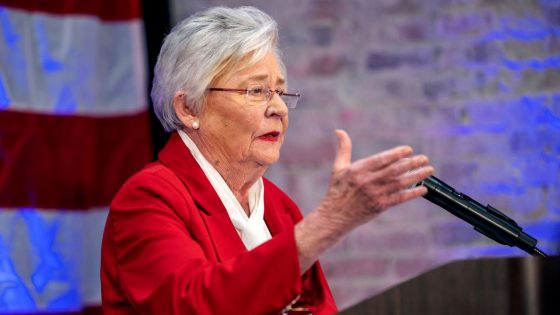Amidst the pomp and circumstance of the Paris 2024 festivities, the financial realities of being an international athlete are garnering more attention.
Whether it’s music superstar Flavor Flav offering funding to cover an athlete’s rent, or retired NFL players offering American sprinters a top-up, it’s rarely been more clear that representing your country does not automatically lead to financial security.
The situation is often more dire for Paralympians who, like many disabled Canadians, can struggle financially. According to a recent report by Statistics Canada, the median employment income of disabled people in Canada is $10,000 less than their able-bodied counterparts.
One Paralympian, who spoke to CBC Sports on the condition of confidentiality out of fear of reprisals, said that the financial balancing act is an anxiety-inducing one.
“I literally knock on wood. Anytime I get something in the mail and it says it’s from [my provincial government], I hold my breath each time.”
WATCH | IPC president wants all tickets for Paris sold before opening ceremony:
With 100 days to go before the 2024 Paralympics open in Paris, IPC president Andrew Parsons joined CBC Sports’ Scott Russell to talk about how these Games will be different from any before it.
The athlete said the issue is that, in the midst of already confusing application processes for provincial programs, there is lack of clarity as to whether carding funding counts as income for the purposes of disability support initiatives, even though the federal government has made it clear that carding funding is non-taxable.
The hope from athletes’ perspective is that both Sport Canada and provincial governments can come to a formal agreement so that Para sport athletes who have to access provincial benefit programs can breathe a little easier.
“It’s ridiculous … just because you can’t work doesn’t mean that you can’t have other ways of [earning money],” the athlete said.
Disability support programs across the country put significant caps on how much a person can earn or own. In some provinces, that can be just a few thousand dollars and the maximum baseline carding amount is $1,765 per month.
Federal disability funding facing scrutiny
This isn’t the first time that disabled people have been faced with the spectre of clawbacks related to government funding. COVID-era Canadian Emergency Support Benefits (CERB) payments triggered clawbacks in some areas of the country.
Each provincial program is administered differently, with only Ontario’s Ontario Disability Support Program (ODSP) explicitly stating on its website that carding money is exempt from any income calculations.
In many provinces, eligibility for social support is tied to extended healthcare benefits, such as medication coverage, that you wouldn’t have access to otherwise.
One Paralympian who spoke to CBC Sports said that losing their social support funding could lead to thousands of dollars in additional medication costs. The general lack of clarity means that some Para athletes feel as if they have to obscure their finances.
WATCH | Canada’s Paralympic chefs de mission join CBC Sports:
CBC Sports’ Devin Heroux chats with Canada’s co-chefs de mission, Karolina Wisniewska and Josh Vander Vies, about leading the team to the 2024 Paris Paralympics.
High-support needs athletes, those who may need additional resources, such as an attendant to live, train, and compete, are at additional risk of being low income. Sport Canada, the administrator of carding funding, offers $500 per month for those eligible, though one of the Paralympians we spoke to CBC said that this equates to just two training sessions and that they haven’t seen an increase since the additional funding was made available in 2013.
Sport Canada shared that they weren’t aware of carding funds affecting disabled athletes’ provincial benefits.
The statement pointed to the federal government’s Disability Inclusion Action Plan, which includes priorities such as the new federal disability benefit, putting in place disability-specific employment initiatives, and further developing policies and procedures related to the Accessible Canada Act.
One of the four foundational principles of the action plan is financial security, though the federal disability benefit has come under scrutiny for not meeting the needs of Canada’s disabled people.
Paying the bills
However, just because the provincial government is unlikely to come knocking in some parts of the country, doesn’t mean the road gets any easier.
Eric Rodrigues has been with the national wheelchair rugby program since 2017 and said that the sheer financial weight of playing the sport he loves wouldn’t be possible without the support of his club team, family, and friends. He’s thankful for the support Canadian Para athletes get — especially when compared to other parts of the world who survive on much less — but that problems still remain when it comes to ensuring that Canadian Paralympians can pay their bills.
“Unless you’re a settlement person and you have zero financial limitations, it’s going to be costly. And I’m not sure whose responsibility it is to cover those costs. it’s a really difficult problem to tackle.”
Rodrigues said that part of the challenge for high support needs athletes like himself, earlier in their careers, is trying to navigate competing in sport while figuring out their daily living needs.
Paralympians like Rodrigues have their attendant’s costs — such as airfare and hotel — paid for by the national team when representing Canada, but the same cannot be said at the provincial or club level. Some athletes have faced additional fees at airports related to required medical equipment, such as shower chairs, and many rely on family members to provide their care in order to make the process financially feasible.
Rodrigues said that, while he has no complaints about how he has been treated by provincial programs, including ODSP, he is hopeful that more support will be provided in the future for athletes trying to live their dreams.
“I’m 1,000 per cent aware that there are other people that are not as fortunate [as me] , and it’s terrible because I think we might be missing out on some uncut gems that are out there because of that.”
Until then, some elite athletes will feel as if they have to keep things quiet in order to live and train.
As one Paralympian put it, “It’s more when you get to the spectrum of the high support needs athletes that have to make that choice of: do I want to be an athlete or do I want to live?”
Source Agencies






